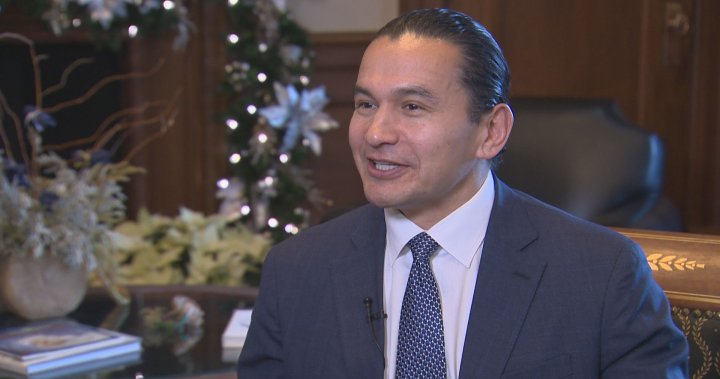In a joint announcement, Winnipeg Mayor Scott Gillingham and Manitoba Premier Wab Kinew unveiled a comprehensive plan to address homelessness in the city, slated for implementation in 2025. The core strategy involves clearing existing encampments and transitioning individuals into permanent housing within a 30-day timeframe. This initiative emphasizes a “housing first” approach, coupled with essential “wraparound” supports encompassing addiction and mental health services. Once individuals are successfully placed in housing, the plan aims to prevent the re-establishment of encampments in cleared areas, although specific enforcement mechanisms remain undefined. This represents a significant shift from previous approaches, signaling a commitment to move beyond temporary solutions and tackle the root causes of homelessness.
The plan’s success hinges on collaborative efforts across multiple sectors. This includes coordinated action between provincial and municipal governments, federal and Indigenous authorities, non-profit organizations, and private entities. This multi-pronged approach underscores the complexity of the issue and the need for shared responsibility in addressing it. To facilitate this collaboration, the city has established a “non-profit housing concierge” to streamline the process for service providers, allowing them to navigate housing-related matters efficiently through a single point of contact. This centralized resource aims to simplify the complex bureaucratic processes often associated with securing housing for vulnerable populations.
Bolstering the plan’s feasibility, the provincial government has proactively secured housing units to accommodate individuals transitioning from encampments. This addresses a common obstacle encountered in similar initiatives, where legal challenges often arise due to insufficient housing availability. By securing housing in advance, the province aims to preemptively overcome this hurdle and ensure the plan’s smooth execution. Stakeholders in the non-profit sector, such as Siloam Mission, have also committed to significantly expanding housing capacity over the next decade, further solidifying the long-term vision of the initiative.
Siloam Mission CEO, Tessa Blaikie Whitecloud, emphasized the critical role of housing availability in addressing homelessness, highlighting the scarcity of affordable rental units for individuals relying on social assistance. The plan’s focus on providing housing, she notes, is a crucial step towards achieving sustainable solutions. Leaders from other community organizations, such as St. Boniface Street Links and the Social Planning Council of Winnipeg, expressed optimism about the plan, acknowledging its potential to bring about meaningful change. They also emphasized the importance of preventative measures to support individuals at risk of homelessness and underscored the need for adequate funding to facilitate effective coordination among service providers.
While acknowledging the plan as a “significant step forward,” Kate Kehler, executive director of the Social Planning Council of Winnipeg, emphasizes the need for comprehensive support beyond simply providing housing. She advocates for measures to prevent individuals from falling into homelessness in the first place, addressing the systemic factors that contribute to housing instability. Furthermore, Kehler stresses the importance of sufficient financial resources to ensure effective coordination among the various organizations involved in the initiative. Collaboration, she notes, requires investment, particularly in streamlining communication and resource allocation.
The Winnipeg initiative draws inspiration from successful models implemented in other jurisdictions, such as Houston, Texas. Greg Burnett, executive director of the Downtown Community Safety Partnership, highlighted the value of intergovernmental and interagency collaboration after observing Houston’s approach firsthand. Premier Kinew emphasized the importance of laying the groundwork and securing necessary resources before implementing such a significant undertaking. He reiterated the urgency of addressing homelessness in a wealthy nation like Canada, advocating for a move beyond temporary solutions and towards a future where stable housing is a fundamental right for all. The plan symbolizes a unified commitment to tackling homelessness in Winnipeg, promising a more coordinated and comprehensive approach than previously seen.

